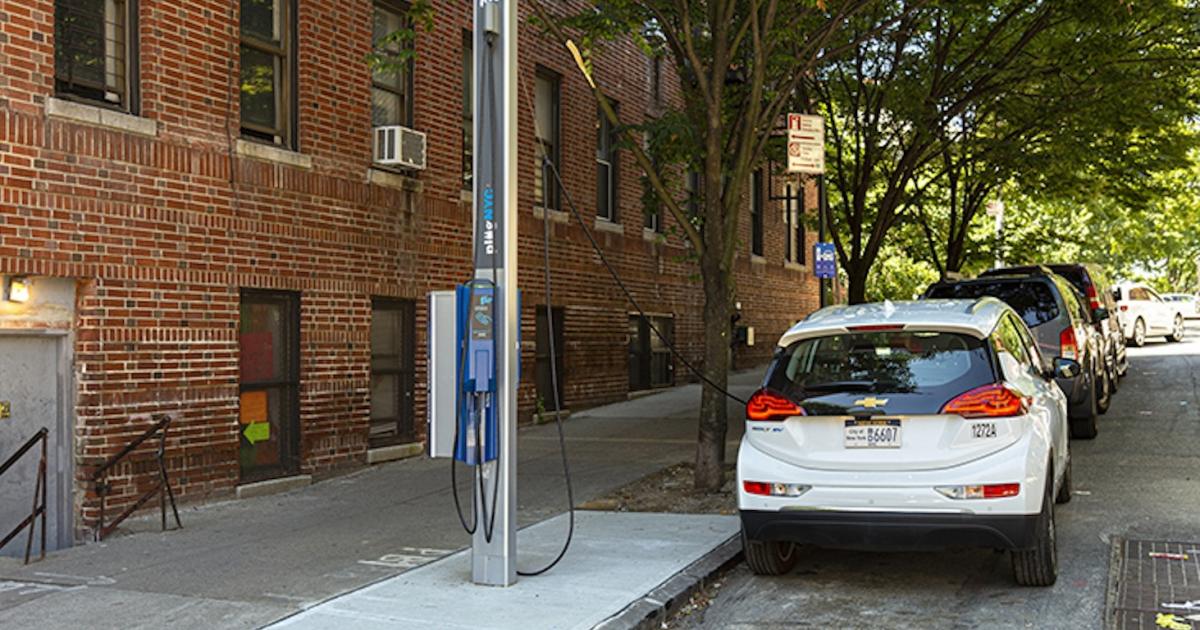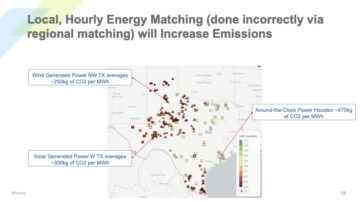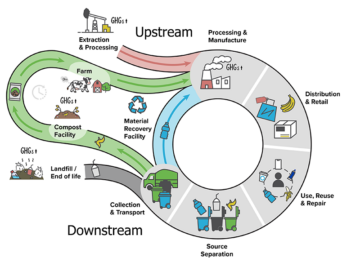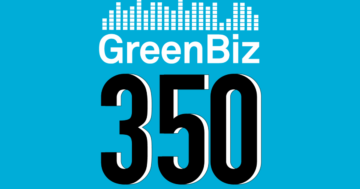
In November, New York state’s Public Service Commission (PSC) approved a historic electric vehicle (EV) infrastructure buildout program, dramatically increasing its investments in EV charging throughout the state. The 2020 EV budget increased from $701 million to $1.24 billion now, with $372 million funding for disadvantaged communities. The program also increased the target number of direct current fast-charging stations from 1,500 to 6,302.
The PSC orders — Order 18-E-0138, focused on utility make-ready programs, and Order 22-E-0236, focused on demand charges — promise to forever change New York City’s EV charging landscape. As part of the PSC make-ready order, Con Edison must file an updated implementation plan its program no later than Jan. 12. Here’s a look at both PSC orders and the changes they will bring to the city’s EV future.
NYC’s needed fast-charging boost
The commission’s order updates EV charging funding programs established from a 2020 PSC order; A make-ready program funds a portion of the development for EV charging projects, typically the most expensive part, which usually is everything but the physical hardware itself (conduit, upgrading power at the site and electrical/construction).
The 2023 PSC order brought major updates to existing EV programs and created new ones across both Level 2 and fast-charging projects, such as forming a stakeholder group to develop an EV interconnection framework that addresses utility queuing backlog issues.
The order particularly focuses on New York City: For example, out of the roughly $542 million funding increase going into the make-ready program for the state’s fast-charging projects, $347 million goes to Con Edison for the city. The previous 2020 PSC order had only $42 million earmarked to Con Edison for fast-charging, out of a state total of $94 million.
The order incentivizes the development of larger charging projects, much like the ones Revel has built throughout New York City. Based on public docket comments from Revel, Tesla and others, the PSC approved modifying the capacity limits of project sites up to 6 megawatts (MW) for Con Edison territory, up from 3 MW for other utility territories. This decision allows make-ready eligibility for projects with up to 60 fast-charging plugs, hugely supporting improved economies of scale.
“As New York City goes electric, large EV charging stations such as the ones Revel has planned that can charge hundreds of EVs a day will be necessary to avoid long waits to charge when EV adoption increases in New York,” Jake Potent, director of policy and government affairs at Revel, said in an email.
Shedding demand charges
The build-out of fast-charging stations is notoriously complex, and high utility demand charges are a major headache for operators. High-demand charges can cripple an EV charging operation if costs per kilowatt-hour run high.
For New York state, PSC’s demand charge order brings with it some substantial updates, easing the burden of operating massive fast-charging sites, especially in New York City.
Among the changes is a Con Edison commercial managed charging program. For the peak avoidance incentive, fast-charging operators earn an incentive based on whether their maximum load ratio — the maximum power output of the charging station relative to its designed capacity — is greater than or equal to 15 percent, or below 15 percent.
For example, a max load ratio of 50 percent means that the charging station can provide up to 50 percent of its total capacity as power to a vehicle.
Public DC fast-charging with a max-load-ratio range of less than 15 percent in the summer would get $20/kW and $8/kW in the winter. For a max-load-ratio range of more than or equal to 15 percent, the incentive would be $26/kW in the summer and $8/kW in the winter.
“ConEd’s new Smart Charge Commercial program is a meaningful incentive that will effectively lower the cost of electricity for public fast charging stations which is key to making fast charging more economical, while also helping to avoid strain on the grid during peak-times,” Potent said.
Is an influx of EVs coming?
New York City has ambitious plans for electrification, and widespread charging facilities are critical to those plans. While Level 2 charging from providers such as FLO and itselectric can be beneficial for many New Yorkers, it won’t fully work for the city’s grand plan to electrify the entire taxi and for-hire vehicle industry, like Uber and Lyft, by 2030 because typically rideshare drivers need faster charging speeds during the day.
The city needs many more fast-charging sites, especially ones like Revel’s mega-hubs, which offer publicly accessible fast-charging.
It seems increased EV demand is coming. In October 2023, the city lifted its cap on new for-hire vehicle licenses, but only for EVs. While the change was quickly met with a lawsuit filed by the New York Taxi Workers Alliance, in which a judge issued a restraining order to stop the city’s policy move, the Nov. 8, 2023, judgment didn’t go into effect until Nov. 13, 2023, at 9 a.m.
This resulted in a mad dash for for-hire licenses. Some reports indicate that nearly 6,000 applications were filed in three days.
Even if only a small percentage of those applications materialize into actual EV drivers on New York City’s streets, it’s clear that the city needs more fast charging, and that change is coming quickly.
- SEO Powered Content & PR Distribution. Get Amplified Today.
- PlatoData.Network Vertical Generative Ai. Empower Yourself. Access Here.
- PlatoAiStream. Web3 Intelligence. Knowledge Amplified. Access Here.
- PlatoESG. Carbon, CleanTech, Energy, Environment, Solar, Waste Management. Access Here.
- PlatoHealth. Biotech and Clinical Trials Intelligence. Access Here.
- Source: https://www.greenbiz.com/article/how-2024-will-accelerate-new-york-citys-ev-future
- :has
- :is
- $UP
- 000
- 1
- 12
- 13
- 15%
- 2020
- 2023
- 2024
- 2030
- 24
- 302
- 50
- 500
- 60
- 7
- 8
- 9
- a
- accelerate
- accessible
- across
- actual
- addresses
- Adoption
- Affairs
- Alliance
- allows
- also
- ambitious
- an
- analysis
- and
- applications
- approved
- ARE
- AS
- At
- avoid
- based
- BE
- because
- below
- beneficial
- Billion
- both
- bring
- Brings
- brought
- budget
- build-out
- built
- burden
- but
- by
- CAN
- Capacity
- change
- Changes
- charge
- charges
- charging
- charging stations
- City
- clear
- coming
- comments
- commercial
- commission
- Communities
- complex
- Cost
- Costs
- created
- critical
- Current
- Dash
- day
- Days
- dc
- decision
- Demand
- designed
- develop
- Development
- didn
- direct
- Director
- dramatically
- drivers
- during
- earn
- easing
- economies
- Economies of Scale
- Edison
- effect
- effectively
- Electric
- electricity
- eligibility
- Entire
- equal
- especially
- established
- Ether (ETH)
- EV
- everything
- evs
- example
- existing
- expensive
- facilities
- FAST
- fast-charging
- faster
- File
- filed
- FLO
- focused
- focuses
- For
- forever
- Framework
- Free
- from
- fully
- funding
- funds
- future
- get
- Go
- Goes
- going
- Government
- Governor
- great
- greater
- Grid
- Group
- had
- Hardware
- helping
- High
- historic
- How
- HTTPS
- Hugely
- Hundreds
- if
- implementation
- improved
- in
- Incentive
- incentivizes
- Increase
- increased
- Increases
- increasing
- indicate
- industry
- influx
- Infrastructure
- interconnection
- into
- Investments
- Issued
- issues
- IT
- ITS
- itself
- Jan
- jpg
- judge
- Key
- landscape
- large
- larger
- later
- less
- Level
- licenses
- like
- limits
- load
- Long
- Look
- lower
- Lyft
- major
- Making
- managed
- many
- massive
- materialize
- max
- maximum
- meaningful
- means
- million
- more
- most
- move
- much
- must
- necessary
- Need
- needed
- needs
- New
- New York
- new york city
- New York state
- Newsletter
- no
- node
- nov
- November
- now
- number
- NY
- october
- of
- offer
- on
- ones
- only
- operating
- operation
- operators
- or
- order
- orders
- Other
- Others
- our
- out
- output
- part
- particularly
- Peak
- per
- percent
- percentage
- physical
- plan
- planned
- plans
- plato
- Plato Data Intelligence
- PlatoData
- policy
- portion
- potent
- power
- previous
- Program
- Programs
- project
- projects
- promise
- provide
- providers
- public
- publicly
- quickly
- range
- ratio
- relative
- Reports
- resulted
- roughly
- Run
- s
- Said
- Scale
- seems
- service
- sign
- site
- Sites
- small
- smart
- some
- speeds
- stakeholder
- State
- station
- Stations
- Stop
- streets
- substantial
- such
- summer
- Supporting
- sustainable
- T
- Target
- territories
- territory
- Tesla
- than
- that
- The
- The State
- their
- they
- this
- those
- three
- throughout
- to
- Total
- transport
- typically
- Uber
- until
- updated
- Updates
- usually
- utility
- vehicle
- waits
- want
- was
- were
- when
- whether
- which
- while
- widespread
- will
- Winter
- with
- Work
- workers
- would
- york
- youtube
- zephyrnet











